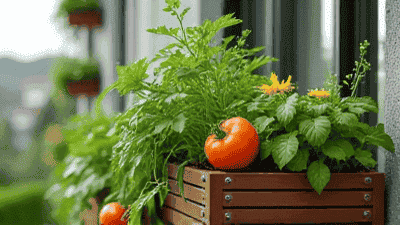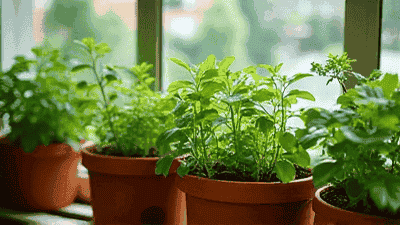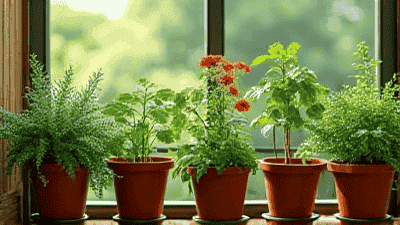
Growing vegetables and herbs on a balcony is a rewarding way to engage in horticulture, even if you have limited space. With careful planning and the right selection of plants, you can create a thriving garden that provides fresh produce and aromatic herbs right at your doorstep.
Before diving into specific plants, it is essential to understand the fundamentals of balcony gardening. The success of your balcony garden depends on various factors, including sunlight, space, and growing conditions.
Sunlight Exposure: Observe how much sunlight your balcony receives throughout the day. Most vegetables and herbs require at least six hours of direct sunlight for optimal growth. Some plants can tolerate partial shade, but understanding sunlight patterns will help you choose the right plants.
Size of Containers: Choose pots and containers based on the available space and the type of plants you wish to grow. Most vegetables do well in pots that are at least 12 inches deep, while herbs may require smaller containers.
Wind Protection: If your balcony is exposed to strong winds, consider using barriers like trellises or windbreaks to protect your plants. Wind can dry out soil and damage delicate leaves.
Weight Limitations: Be mindful of the weight capacity of your balcony. Soil, plants, and containers can become quite heavy, especially when wet. Use lightweight potting mixes and smaller pots where possible.

When it comes to growing vegetables on your balcony, there are numerous options to consider. Most balcony-friendly vegetables are compact, grow well in containers, and are relatively easy to maintain. Here are some excellent choices:
Tomatoes are a popular choice for balcony gardens. They can thrive in pots and produce abundant fruit.
Lettuce is fast-growing and suitable for container gardening.
Spinach is nutrient-rich and grows well in containers.
Both sweet and hot peppers can be successfully grown on balconies.
Radishes are quick to mature and require minimal space.
Carrots can be grown in deep pots, making them suitable for balcony gardens.
Bush varieties of green beans grow well in containers and produce an abundance of beans.
Herbs are a fantastic addition to a balcony garden, providing fresh flavors for cooking and aromatic scents. Many herbs are also easy to grow in containers and can thrive with minimal attention. Here are some excellent herbal plants to consider:
Basil is a favorite culinary herb known for its aromatic flavor.
Parsley is versatile and can be used in various dishes.
Chives add a mild onion flavor to dishes and are easy to grow.
Thyme is a hardy herb that can be grown indoors or outdoors.
Mint is a fragrant herb that can spread quickly, making it well-suited for container gardening.
Oregano is often used in Mediterranean cuisine and is easy to grow in pots.
Rosemary is a hardy and aromatic herb that adds flavor to many dishes.

Once you have identified the vegetables and herbs you want to grow, you can start planning and planting your balcony garden. Follow these steps to set up your container garden successfully.
Choose containers that are appropriate for the plants you intend to grow. Ensure that they have drainage holes to prevent waterlogging. When it comes to materials, consider options such as:
Use high-quality potting soil that is specifically designed for container gardening. Avoid garden soil, as it can become compacted in pots and may harbor pests. Consider mixing in compost to enrich the soil with nutrients.
You can either start your vegetables and herbs from seeds or purchase young plants from a nursery. If starting from seeds:
If you are planting young plants, gently remove them from their nursery pots and place them into the prepared containers, ensuring that they are planted at the proper depth.
Watering practices will depend on the climate and the plants you have chosen. Generally, container plants require more frequent watering than those in the ground due to quicker evaporation. Here are some tips for proper watering:
Fertilizing your plants is key to ensuring healthy growth. Use a balanced, slow-release fertilizer that is compatible with container plants. Follow the manufacturer's instructions for proper application rates.
Keep an eye out for pests that may invade your balcony garden. Common pests include aphids, snails, and spider mites. Here are some pest management strategies:
Once your plants start to grow, you'll be able to enjoy the fruits of your labor. Each plant has its harvesting method:
Creating a balcony garden filled with vegetables and herbs is a fantastic way to engage in horticulture while maximizing limited space. By carefully selecting suitable plants, planning your layout, and providing the right conditions, you can cultivate a productive and enjoyable garden. Balcony gardening not only produces fresh, flavorful produce but also enhances your living space and provides a peaceful retreat amidst urban living.
With the right knowledge and care, your balcony can become a vibrant oasis, flourishing with fresh vegetables and aromatic herbs.